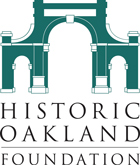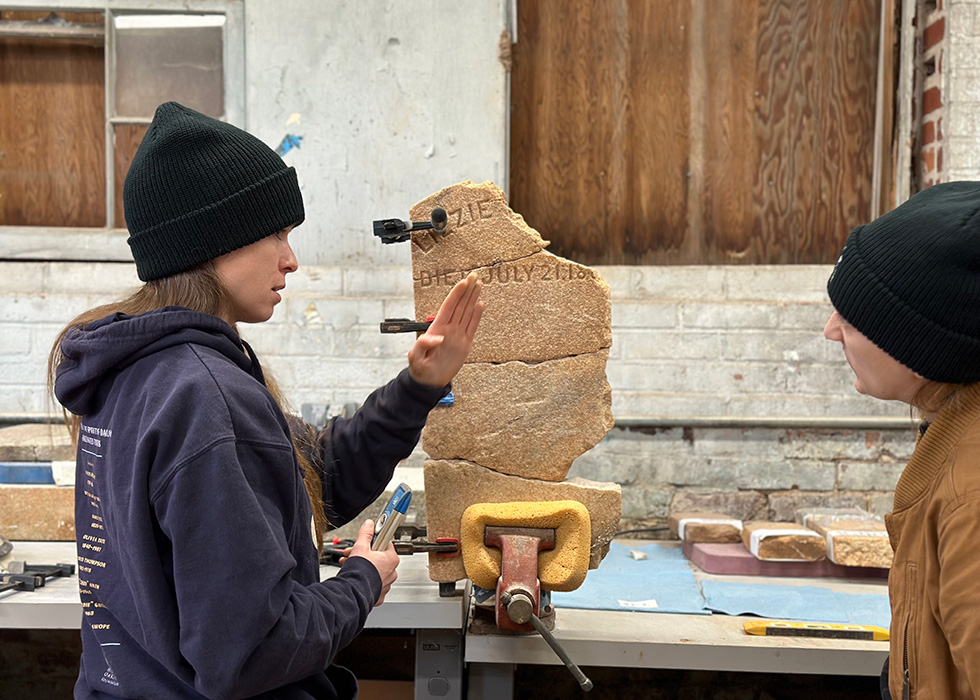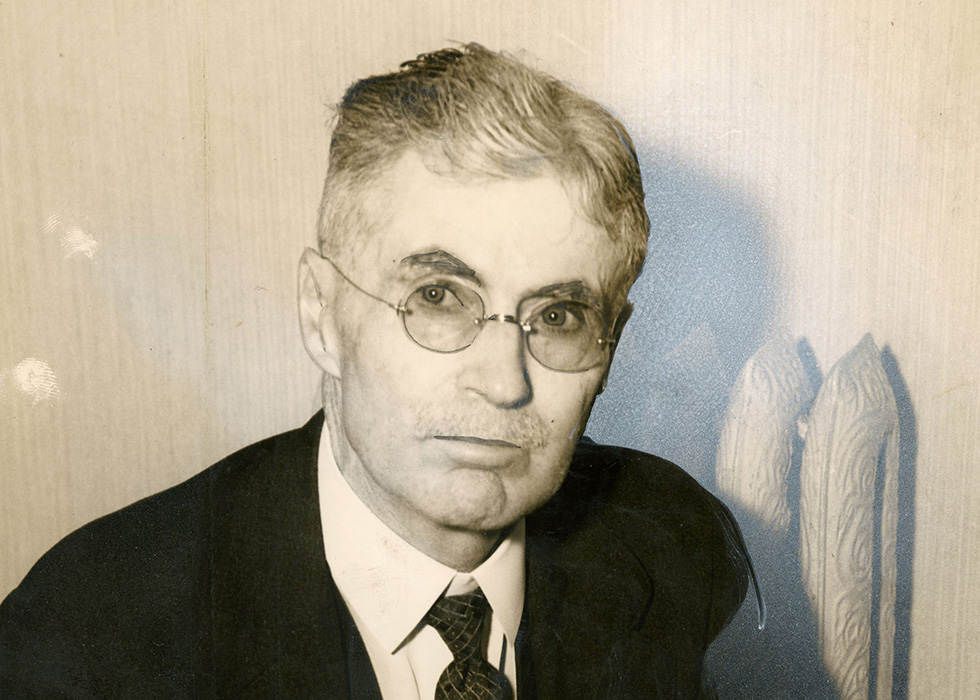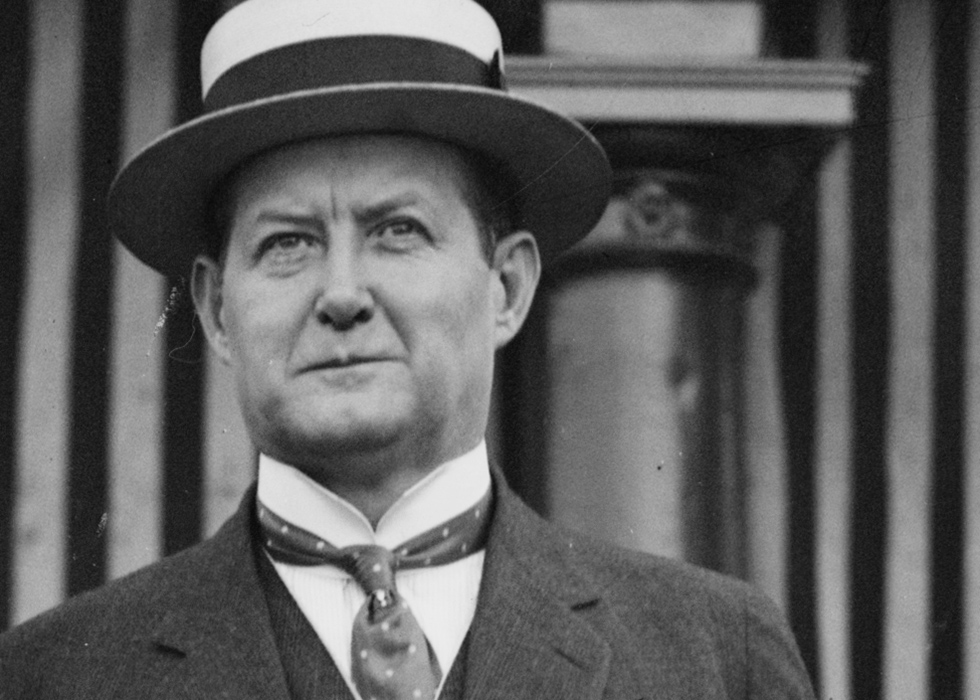
Resident Spotlight: Mayor Ivan Allen Jr.

A look back at the history of sports in Atlanta inevitably leads to Mayor Ivan Allen Jr. (1911-2003), a two-term mayor and Oakland Cemetery resident. Mayor Allen played a pivotal role in bringing several sports teams to Atlanta, but his impact reached beyond the playing field. Mayor Allen guided the city through the turbulent 1960s, and his political leadership helped to transform Atlanta into a progressive metropolis and international city.
Ivan Allen Jr. grew up in a prestigious Atlanta family and entered into the business world after graduating cum laude from Georgia Tech in 1933. As one of Atlanta’s business leaders and a president of the Georgia Chamber of Commerce, Allen recognized the negative impact that segregation had on Georgia’s economy. He ran on a segregationist platform during gubernatorial bids in 1954 and 1958 but soon changed his political philosophy on segregation. Allen defeated Lester Maddox, a segregationist restaurant owner, in the 1961 mayoral election. Much of his support came from Atlanta’s African American community.
On his first day in office in 1962, Mayor Allen ordered the removal of all “White” and “Colored” signs on City Hall property, which would mark a theme of integration and social equality that would define his term as mayor. Allen would go on to desegregate many city departments, including the Atlanta Fire Department, and further worked to integrate Atlanta hotels, restaurants, and public places. In 1963 President John F. Kennedy asked Allen to testify before Congress in favor of what would become the Civil Rights Act of 1964. Allen was the only Southern politician to do so and received death threats in the process. Allen recognized the benefits of a unified city, and his efforts led to a wave of economic growth throughout the city.

Mayor Allen served as a leader for the city, but he also had to serve as a healer during moments of extreme tragedy. Just a few months after taking office, momentous misfortune struck the heart of Atlanta’s cultural and artistic community. On June 3, 1962, over 100 Atlanta citizens were killed when Air France flight 007 crashed departing the Orly Airport in Paris. The Atlanta victims were art patrons and cultural leaders who had been touring Europe’s galleries and museums. The Orly crash was considered the deadliest aviation disaster at the time. Allen undertook the solemn task of flying to France to identify and bring the remains home. Allen later reflected on the experience, remarking:
“I was nothing but the Mayor of Atlanta and a friend and neighbor of 106 people who had been killed at this same airport only the day before…These were my lifelong friends. This was my generation. This was also the backbone of Atlanta’s cultural society, the city’s leading patrons of the arts. There was no precedent for this kind of agony.”
The devastating tragedy was a catalyst for Atlanta’s arts community and led to the founding of the Woodruff Arts Center. Tragedy once again loomed over Atlanta after the assassination of Martin Luther King Jr. in 1968. Allen participated in marches in the days following, as well as speaking with and comforting Dr. King’s widow, Coretta Scott King.
In addition to his civil rights advocacy, one of Ivan Allen’s most notable and lasting legacies is imbedded in Atlanta’s three major professional sports teams. In what seemed to be a politically and financially risky move, Allen campaigned during his 1961 mayoral run on building a large stadium to attract a Major League Baseball team to Atlanta. In early 1963 as plans were underway to build a stadium in what was the Washington-Rawson neighborhood south of downtown, Mayor Allen announced that negotiations were underway to bring the Kansas City Athletics to Atlanta. The deal seemed to be going perfectly until July 1963 when the American League denied the team’s relocation. Mayor Allen was now stranded with a partially-built $18 million stadium and an empty promise of a baseball team. But, in October 1964, the Milwaukee Braves announced that they would relocate to Atlanta for the 1966 season. Atlanta finally had a Major League Baseball team.

With the new baseball stadium completed in April 1965, interest in obtaining a professional football team for Atlanta grew. Prospective owners from both the American Football League and the rival National Football League vied for rights for the new stadium. As a potential AFL owner started negotiations with Allen, NFL commissioner Pete Rozelle flew down to Atlanta to obtain rights to the stadium. Commissioner Rozelle, Mayor Allen, and Rankin Smith (who became the owner of the Falcons) were able to negotiate a deal that same day.
The new Atlanta Stadium, later renamed Atlanta-Futon County Stadium, served as the home of the Braves and Falcons. The stadium also hosted the city’s professional soccer team, the Atlanta Chiefs, and the Beatles played a concert there in August 1965. While not directly responsible for their move, it was under Allen’s mayoral term that the St. Louis Hawks viewed Atlanta as a viable professional sports city and relocated the basketball franchise there in 1968.
Under Ivan Allen’s two terms, Atlanta saw immense commercial and population growth. While other Deep South cities floundered, Allen’s desegregation efforts and civil rights advocacy cemented Atlanta’s position as the capital of the New South. With the founding of cultural institutions like the Woodruff Arts Center and the addition of the Atlanta Braves, Falcons, and Hawks, Atlanta was transformed into a modern metropolis.
Mayor Allen died on July 2, 2003, at 92 years old. He was laid to rest at Westview Cemetery. After the death of his wife Louise in 2008, Allen’s remains were moved to a family lot in Oakland Cemetery. He rests next to his wife Louise and his son Beaumont. Beaumont “Beau” Allen was a longtime champion of HOF. He served as HOF board chairman from 2004 to 2005 and was also on the organization’s board of directors and board of advisors for more than 10 years. He is the namesake of Oakland’s Beaumont Allen Greenhouse.
This blog post was written by Andrew Fowler, Oakland’s education department intern, and originally posted in September 2017.



